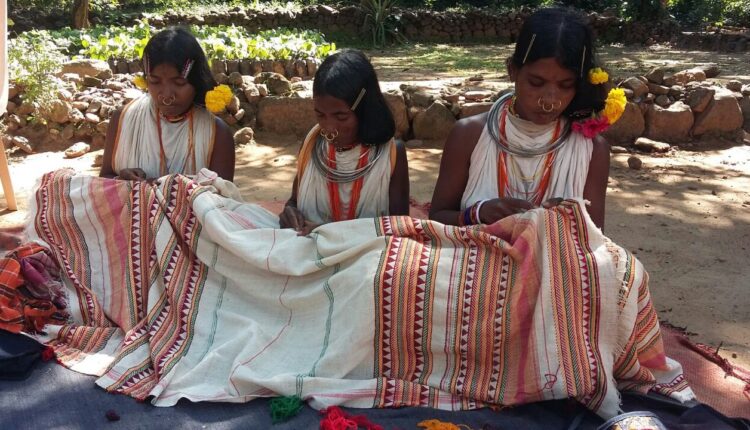Odisha’s Dongria Tribe Creates Magic Through Kapdaganda Shawl
This tribe's women are well recognised for their skill in weaving and for producing the distinctive Kapdaganda embroidered shawl.
The Dongria Kondh tribe lives in the Niyamgiri hills in the districts of Rayagada and Kalahandi in Odisha. This tribe’s women are well recognised for their skill in weaving and for producing the distinctive Kapdaganda embroidered shawl. The Dongria Kondh community’s culture is inextricably linked to this handloom product.
The shawl is decorated by hand using diagonal satin stitches. These patterns are made up of intricate geometric shapes organised in rows of color-coded horizontal lines. The predominant motifs are made up of lines and triangles, which stand for the importance of woods and mountains to the local population. They are expertly stitched in red, green, and yellow threads onto an off-white, gritty cloth.
Newlywed brides usually make kapdagandas for their husbands, however young women occasionally make them for their lovers. They are frequently given as gifts by family members; for example, a man may give a woman he loves one that was handcrafted by a family member. Dongariya Kondh ladies acquire the intricate craft of needlework at an early age and pass it down through the generations. Traditionally, the father’s sister instructs the younger women in the household in needlework. Women use Kapdagandas as ornamental stoles by wrapping them around their necks and waists during festivals. These shawls with the characteristic orange strip along the middle are frequently worn over the necks of men.
The tribe’s main source of income is slash-and-burn agriculture in the nearby highlands and woods. The sales of these shawls are their primary source of revenue. The widespread unlawful copying of their Kapdaganda designs, which are then sold on e-commerce platforms by other organisations and people, is a significant obstacle to them being able to support themselves.
The Dongria Kondh community’s leaders have been requesting a geographical indication (GI) tag for the Kapdaganda shawls since last year. If approved, it would eradicate all traces of forgeries and contribute to the community’s economic growth.

